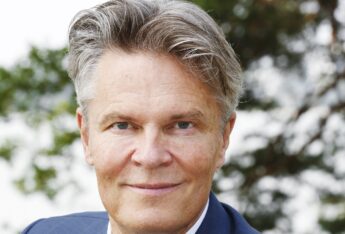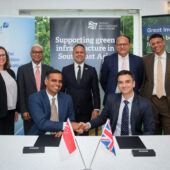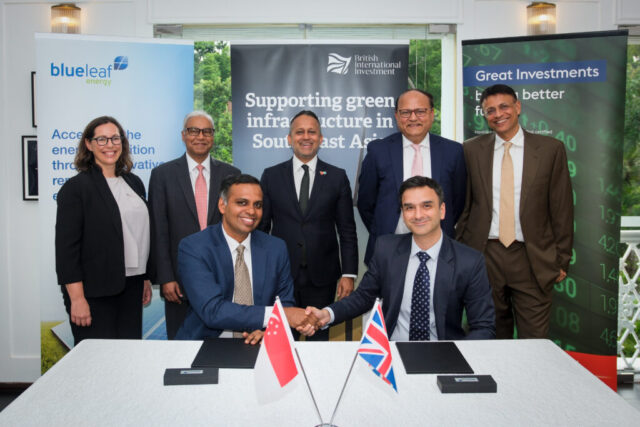Finnfund’s new chair of the board of directors talks to Impact Investor about the development finance institution’s increasing focus on digitalisation, launching the first global emerging markets impact fund in Finland, and the ongoing reform of the Finnfund Act.

Heikki Cantell was appointed the new chair of the Finnfund board of directors in February 2025. He is the general counsel and secretary general at the Nordic Investment Bank (NIB) and has over 30 years of experience at publicly owned financial institutions with an impact mission. Finnfund is the Finnish development finance institution. Its focus sectors include renewable energy, sustainable forestry, sustainable agriculture, financial institutions, and digital infrastructure and solutions. Every year, it makes 20-30 new investments worth approximately €200m-€250m. Today, Finnfund’s investments, commitments, and investment decisions total about €1.23bn, half of them in Africa.

Maha Khan Phillips (MKP): What strategic priorities do you plan to focus on as chair of the Finnfund board of directors?
Heikki Cantell (HC): As chair of the Finnfund board of directors, I aim to prioritise enhancing the establishment of Finnfund’s role as a technology-driven impact investor, and am committed to further steering our investment strategy so that climate action and environmental issues become central pillars. Additionally, I would like to help Finnfund spur growth that foments quality employment and sustainable livelihoods in the countries where Finnfund operates.
These goals are in line with Finnfund’s ambitions to have half of its new investments related to climate and nature.
These goals are in line with Finnfund’s ambitions to have half of its new investments related to climate and nature, and to grow the fund’s local impact by one-third. Digitalisation also plays a central role in our new strategy, as we aim to double our investments in digital technology.
MKP: What role do you see for private sector collaboration in advancing Finnfund’s impact investment strategy, and how will you engage new partners?
HC: Due to the current global challenges and a trend of public funding decline in many countries, accelerated recently in the US, the role of private financing to tackle global challenges has proven essential.
Finnfund engages with the private sector in many ways, for instance: issuing sustainable and green bonds, creating new funds in which Finnfund acts as an anchor investor and investment advisor, and by developing new impact investing frameworks and tools in collaboration with other investors.
As an example, Finnfund is giving digitalisation a strong focus with the launch of a new fund: the Digital Access Impact Fund, which focuses on digital infrastructure and solutions on developing markets. Its first close will take place this summer, and the second at the end of the year. With initiatives such as the Digital Access Impact Fund, we aim to double our investments in digital technology.
Furthermore, in collaboration with the OP Financial Group, Finnfund launched the first global emerging markets impact fund in Finland, the OP Finnfund Global Impact Fund, which provides professional investors with a means to promote the UN Sustainable Development Goals’ achievement by investing in high-impact projects in developing markets.
Finnfund is giving digitalisation a strong focus with the launch of a new fund: the Digital Access Impact Fund.
Finnfund also developed, in collaboration with a Finnish family office, the Planetary Boundaries Investing Framework, a tool for assessing and monitoring investments’ potential for generating positive planetary effects and for controlling negative outcomes. The framework also contributes to Finnfund’s climate and nature goals.
MKP: How does Finnfund plan to scale investment operations while ensuring long-term sustainability and resilience in the face of economic and political uncertainties?
HC: Finland has a strong position as a technologically advanced country, which creates possibilities for Finnfund to act internationally. This foundation allows us to leverage innovation, sustainability expertise, and a strong financial governance to scale Finnfund’s operations while ensuring long-term resilience.
To achieve this, Finnfund emphasises diversification across sectors critical to sustainable development, not only to mitigate risks but also to align strategy and mission. Additionally, at Finnfund, every investment is considered against three criteria: impact, profitability and sustainability. Each investment is assessed on the basis of these criteria before an investment decision is made, and the investments are further assessed and monitored over their entire life cycles.
Finnfund emphasises diversification across sectors critical to sustainable development, not only to mitigate risks but also to align strategy and mission.
By integrating these approaches, Finnfund can expand its operations sustainably, maintaining its role as a reliable development financier even during periods of global uncertainty.
MKP: With the ongoing reform of the Finnfund Act, what key changes or improvements would you like to see to enhance Finnfund’s impact and effectiveness?
HC: Updating the Finnfund Act from 1972 to today’s standards will give the organisation a solid foundation for its continued development and impact work. To scale up our investments in fragile and conflict-affected states, financing micro-finance institutions that provide essential financial services in underserved communities, and supporting healthcare and education in regions with limited infrastructure, we need a framework that enables faster responses and attracts more private sector co-investment.
Additionally, the reform should reinforce Finnfund’s alignment with Finland’s development policy, particularly in climate action, gender equality and responsible business. Strengthening our role as a key instrument in sustainable finance would maximise our contributions to global development goals. The aim is also to associate Finnish know-how through cooperation with, and the involvement of, Finnish companies.
The reform should reinforce Finnfund’s alignment with Finland’s development policy, particularly in climate action, gender equality and responsible business.
As its own entity, Finnfund has the opportunity to further develop its financing flexibility and risk management, continuing to act as an impact investor that improves living conditions in developing countries by financing impactful and responsible business projects.
MKP: What lessons from your tenure at the NIB do you think will be most valuable in shaping Finnfund’s future strategy and governance?
HC: My experience at the NIB has reinforced the importance of balancing financial strength with a strong mandate for sustainability and impact. At NIB, we were able to maintain the highest credit rating while financing long-term, sustainable projects by finding and fine-tuning this balance. As Finnfund seeks to expand its reach in challenging markets, this balance is paramount for its success.
Additionally, governance and transparency are critical. At NIB, we go beyond adopting clear governance frameworks and strong ESG reporting, by incorporating recognised market standards and science-based targets when developing our own tools to measure the quality and impact of our projects. This is essential to signal to the market that our efforts are in line with our mandate, and that the results of our financing are confirmed by the highest international standards. A continuous emphasis on governance and transparency will allow Finnfund to refine its strategy and communicate its values in a more effective way.
Of course, my previous experience in the international development sector, acquired at the Council of Europe Development Bank, where I served for more than ten years as General Counsel, will also prove beneficial at Finnfund.





